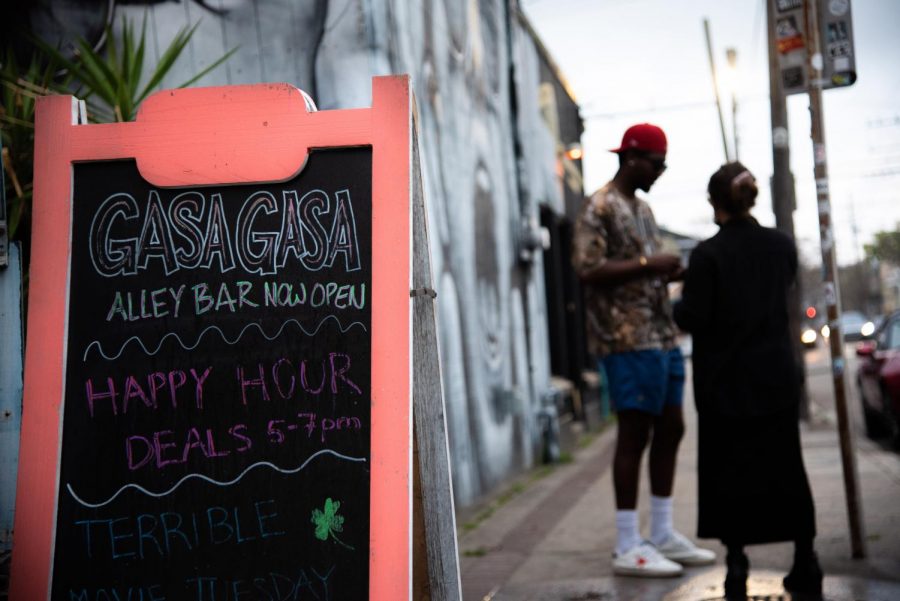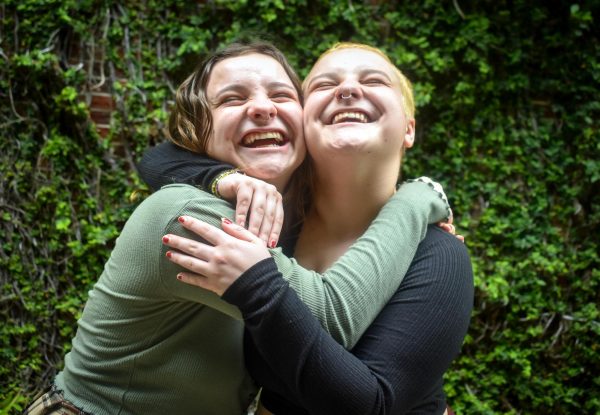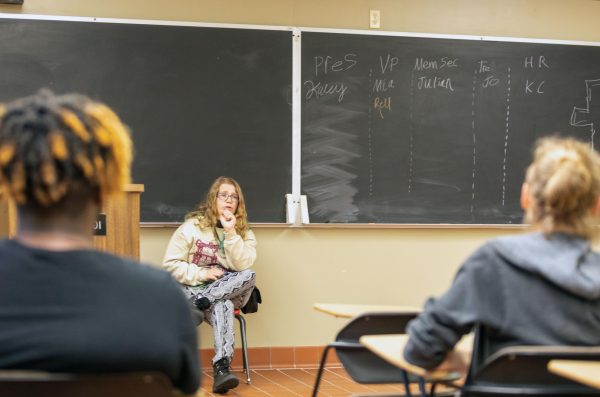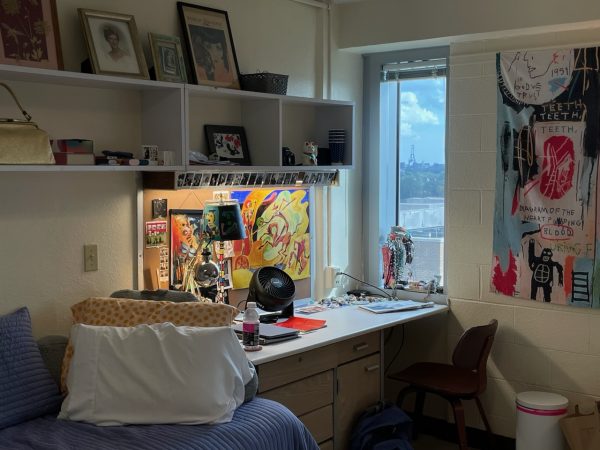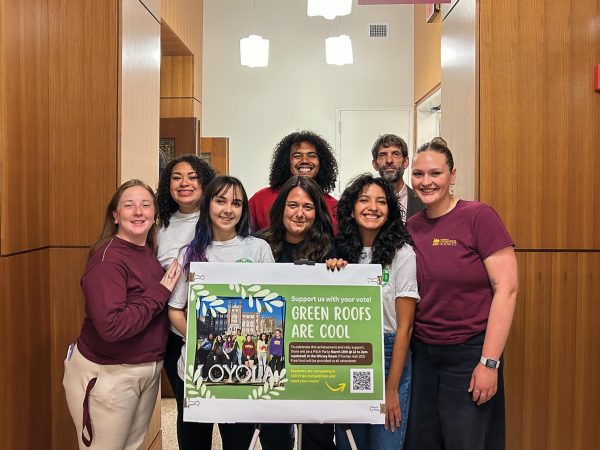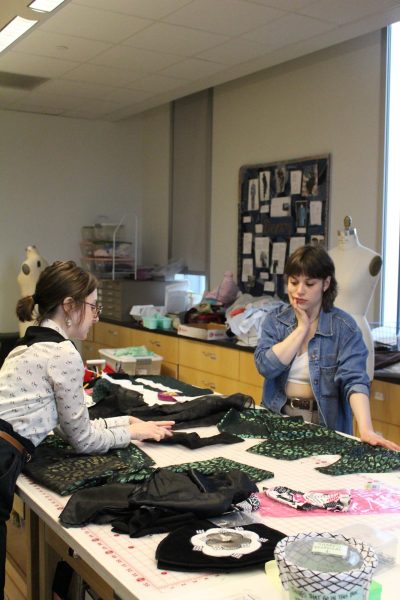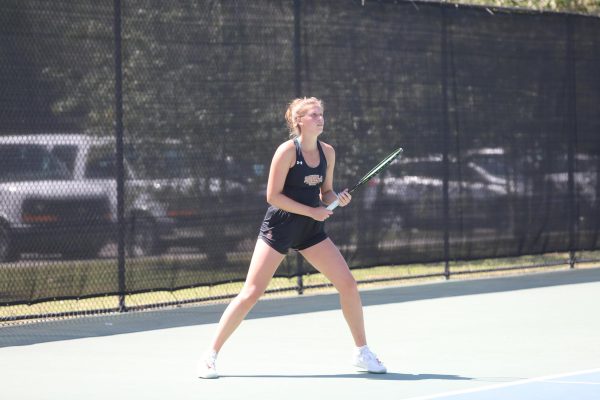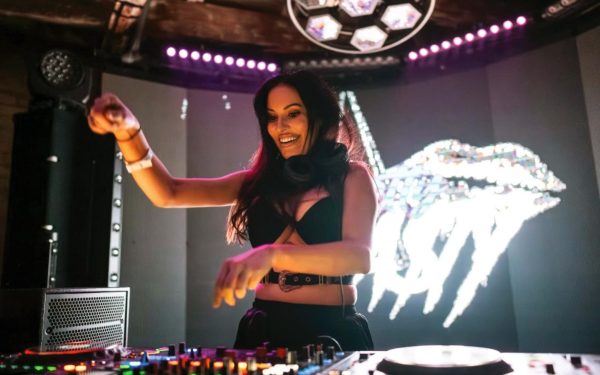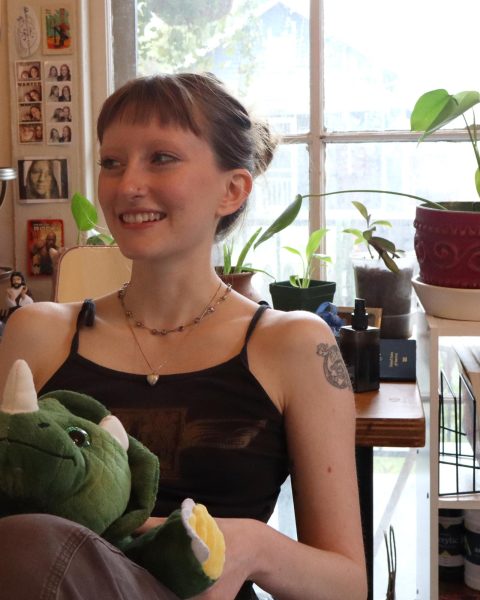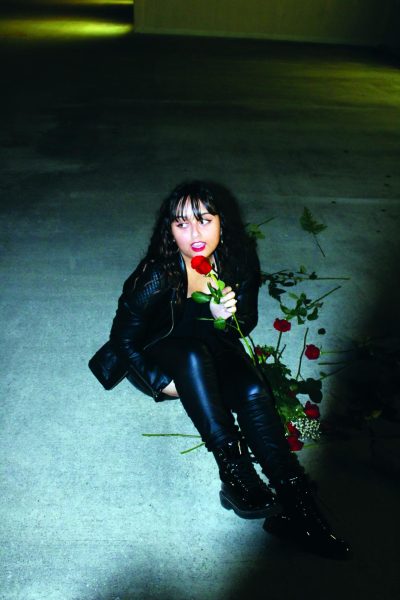Gasa Gasa revived under new ownership
Patrons stand near a sign advertising the recent opening of Gasa Gasa’s Alley Bar. Following months of closure and a change of ownership, the Freret street venue has recently reopened with some adaptations to allow for live music during the pandemic. Photo credit: Michael Bauer
March 26, 2021
In its nearly eight years as the unmistakably mural-covered venue of Freret Street, Gasa Gasa has been host to countless nights of often heavily amplified music, many of which have featured Loyola students and alumni. Like many venues, however, Gasa Gasa has faced a challenging year.
Following months of closed doors due to COVID-19 restrictions, the venue was sold in July 2020, and its future existence was anything but certain. Under new ownership, including by local musician Branden Kempt, Gasa Gasa has recently reopened with some new adaptations to once again host live music amid the constraints of a pandemic.
Once a place for a break between sets, Gasa Gasa has expanded the use of its outdoor courtyard area called the Alley Bar.
It’s now allowing patrons to sit outside and view performances on a screen since live, indoor audiences have been impossible.
“Turns out music venues don’t make a lot of sense during a pandemic, so instead, we had to become a really great bar with a little bit of music in the meantime,” Assistant General Manager Benjamin Moore said.
According to Moore, the Alley Bar now features craft cocktails, draft beer and table service. With the recent citywide move to Phase Three of COVID-19 restrictions, having a limited indoor audience during live music performances will once again be a possibility at Gasa Gasa, and Moore hopes to bring these new comforts of the outdoor Gasa Gasa experience inside.
The Loyola community has enjoyed a close relationship with Gasa Gasa since its 2013 founding. Its original ownership included Loyola graduate and current School of Music Industry professor Michael Twillman.
Loyola students and alumni are often booked to perform and hired to work at Gasa Gasa.
“The last time I played there … with a band that was all former students of mine … I think the other two bands on the bill were current or former students, the sound guy was a former student, the door guy was a current student, but I don’t think I taught the bartender,” Jeffrey Albert, director of the School of Music Industry, said.
Music industry studies junior Zach Smallman performed at Gasa Gasa less than one month before the venue began cancelling shows due to the pandemic.
Smallman sees Gasa Gasa as being an important stepping stone for local student artists trying to book themselves in more venues as well as an energetic, performer-friendly venue itself. To him, it’s important that a venue exists nearby where a musician can “contact the person in charge and be able to book an actual show.” This direct contact would be difficult to have at many other venues.
Smallman credited his booking a show at Gasa Gasa as being the experience that allowed him to reach out to other venues, notably in other markets, and book himself. He added that regardless of who’s performing and who’s in the audience, the energy of a show at Gasa Gasa is “enormous” due to the intimacy of the room.
As more venues are likely to return to in-person performances in the near future, Albert explained that the creativity that Gasa Gasa has shown in reopening is what is probably necessary for the survival of other venues, and he’s thankful that Gasa Gasa may be able to remain a part of the Loyola experience.
“I’m hopeful that the owners will continue this kind of relationship with our students,” Albert said.


